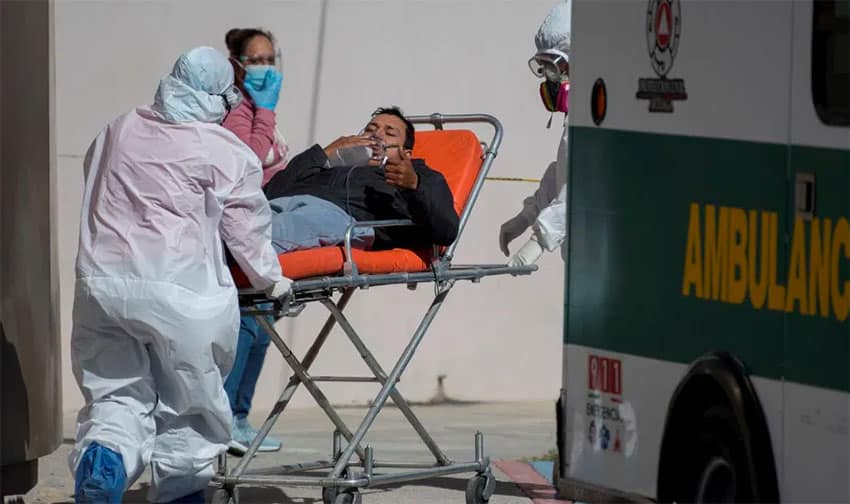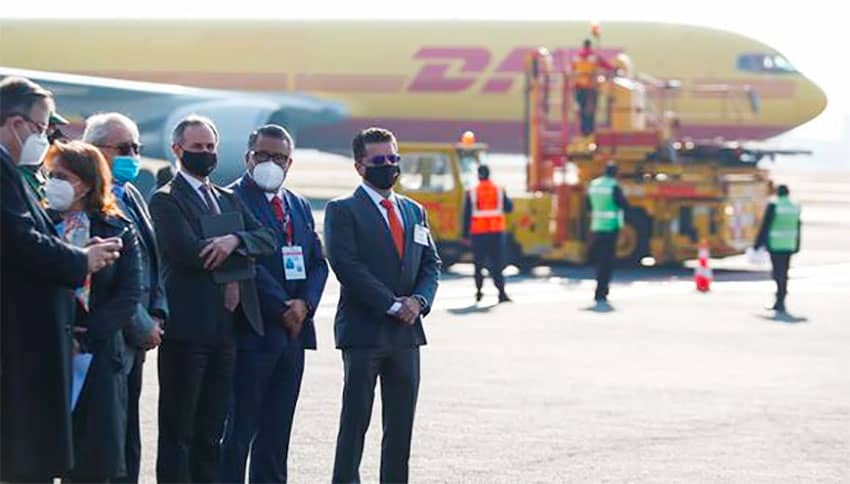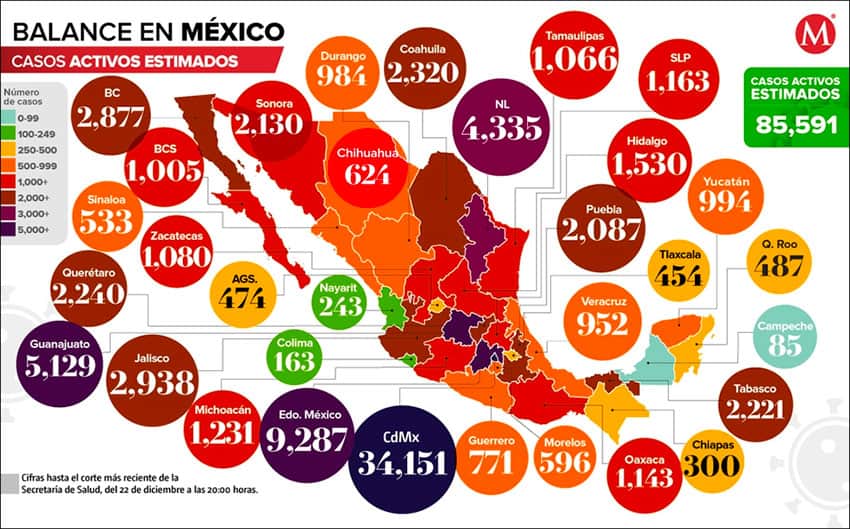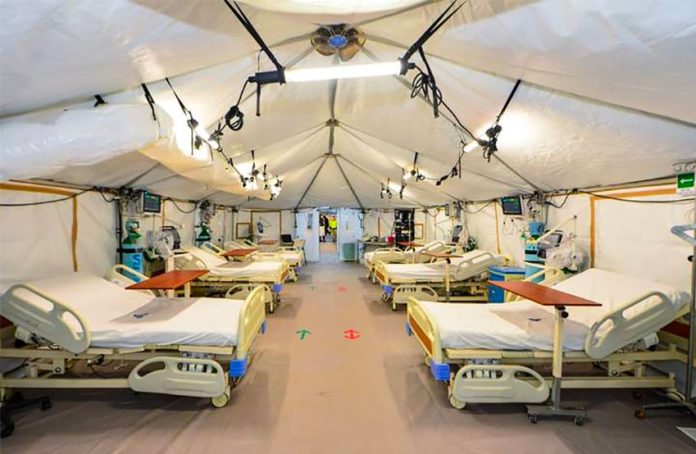The coronavirus outbreak in Mexico City will overwhelm the capital’s health system in January, according to academics in Mexico and the United States who collaborated on a study.
Academics from Mexico City’s Center for Research and Teaching in Economics (CIDE) and Stanford University predict that by the middle of next month demand for hospital beds for coronavirus patients in the capital’s metropolitan area will be 50% higher than the current capacity of approximately 10,000 beds.
Their prediction assumes that there will be more social distancing over the vacation period than there has been recently.
“Under all scenarios and policies, current hospital capacity appears insufficient,” the academics wrote. In a worst case scenario, more than 35,000 coronavirus patients could require a hospital bed at the same time in January, they said.
“Officials should prioritize rapid hospital capacity expansion.”

The news agency Bloomberg said the “study is the clearest evidence yet that Mexico’s virus response is insufficient to deal with what appears to be a second, more virulent outbreak.”
Mexico City has been the country’s coronavirus epicenter since the start of the pandemic, and is now nearing 300,000 confirmed cases. More than 20,000 people have lost their lives to the infectious disease in the capital and just under 5,400 coronavirus patients are currently in hospitals across the city.
More than three-quarters – 77% – of hospital beds set aside for coronavirus patients are currently in use, according to the city government.
The CIDE and Stanford academics said the only way to avoid the collapse of the health system is to maintain very strict coronavirus restrictions well into 2021.
Mayor Claudia Sheinbaum last week ordered a three-week suspension of nonessential activities after the coronavirus risk level in the capital was raised to red light “maximum” but it remains to be seen whether it will have the desired effect on reducing case numbers and hospitalizations.
A report by The New York Times claimed that the federal government misled citizens about the severity of the coronavirus situation in Mexico City and that a red light designation should have come two weeks before it did.

Having ruled out any possibility of enforcing strict lockdowns, the government appears to be hoping that a rapid vaccination campaign will help control the virus. But the reality is that inoculating enough people to end the pandemic will take many months at the very least – if things go smoothly. Some doctors fear the government will bungle the vaccination process based on its lackluster pandemic response.
Still, the arrival of the first batch of Pfizer/BioNTech vaccines on Wednesday provides the country with some much needed hope.
Mexico has signed an agreement to purchase 34.4 million doses of the Pfizer vaccine and the first 3,000 of that number arrived in Mexico City Wednesday morning via DHL from Belgium.
Foreign Minister Marcelo Ebrard, Health Minister Jorge Alcoer and Deputy Health Minister Hugo López-Gatell, who is leading the government’s pandemic response, were among the officials who met the plane on the tarmac.
Mexico is the first country in Latin America to receive a Covid-19 vaccine and among the first 10 in the world, Ebrard said. He said that vaccines will be made available free of charge to all Mexican citizens and the vaccination process will start soon.
“It’s true that we’re still facing a terrible pandemic, the worst we’ve lived through, but today is the start of the end of the pandemic,” Ebrard said. “Today we can clearly see that we’re going to defeat this virus that has … disrupted our lives. … We have hope and today we are very happy.”

The government has already presented a vaccination plan that stipulates that frontline health workers and the elderly will be prioritized. The vaccinations are in the possession of the military and the first shots will be administered on Thursday, the Health Ministry said.
The arrival of the first batch of vaccines comes a day after Mexico recorded a new single-day record of confirmed coronavirus cases. The Health Ministry reported 12,511 new cases on Tuesday, increasing the accumulated tally to just under 1.34 million.
An additional 897 Covid-19 fatalities were also registered, lifting the death toll to 119,495.
According to the federal government stoplight system, there are currently three red light “maximum” risk states – Mexico City, México state and Baja California – and 24 “high” risk orange ones.
But authorities in Morelos announced Wednesday that red light red restrictions would apply in that state from Thursday on. The government warned Monday that tighter restrictions would be implemented if citizens didn’t comply with current rules and today acted on that warning.
Governor Cuauhtémoc Blanco said that all nonessential economic activities will be suspended from Christmas Eve until January 11. That means that the same shutdown that already applies in Mexico City and México state extends to the capital’s southern neighbor.
“Reducing [economic] activity and social mobility is urgent,” Blanco said. “That’s the only way we’ll be able to stop this increase of Covid-19 in our state.”
The government’s decision to enforce red light restrictions comes despite Morelos having recorded fewer than 10,000 coronavirus cases since the start of the pandemic and having a hospital occupancy rate of only 43%.
There are currently 286 confirmed active cases in the state, according to the Morelos Health Ministry, up from 190 on December 1.
Source: Bloomberg (sp), El Financiero (sp), Aristegui Noticias (sp)
